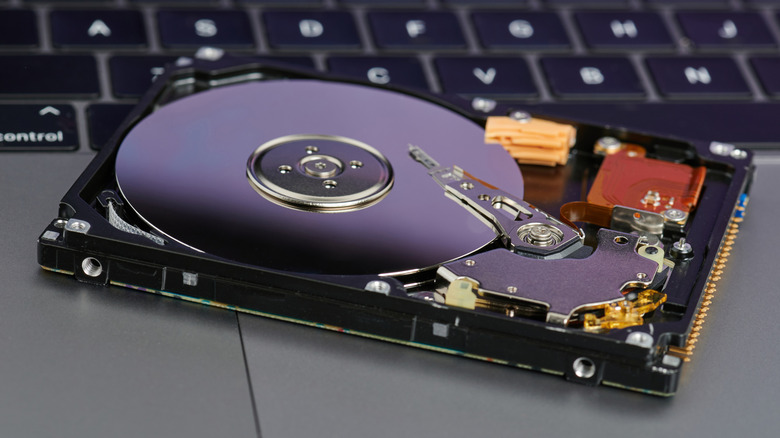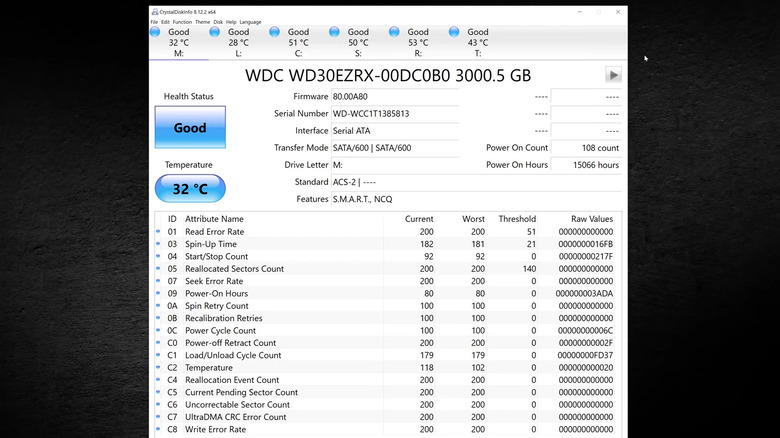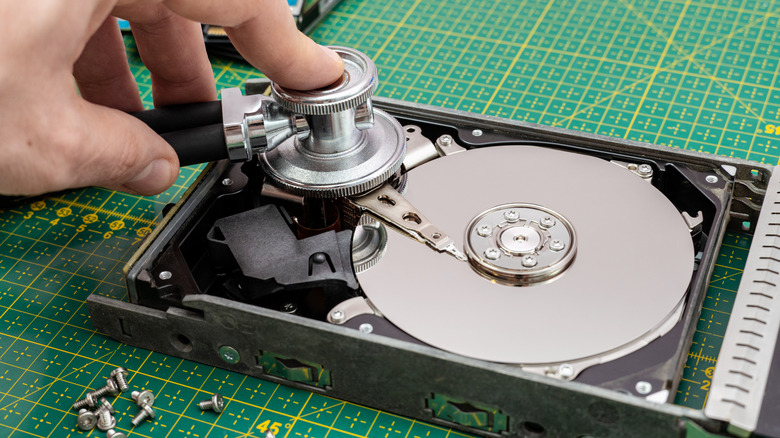Why You Probably Shouldn't Buy A Used Hard Drive
Nothing beats the convenience of a good old hard drive. However, when buying a hard drive, you'll need to consider several things like storage capacity, compatibility, type (HDD or SSD), connectivity options, and more. Even after you've decided on all of this, you may still face a common dilemma: Should you buy a brand-new hard drive or go for a used one to save money? The short answer is that, in most cases, purchasing used hard drives is not a good idea, as it carries several risks that aren't immediately obvious.
Of course, buying a used hard drive can seem like a smart, cost-effective option, especially when refurbished or "like new" models are available at up to 50% off of the original price. After all, you could use that money for some other hardware upgrade or even get a drive with more storage capacity. Unlike used smartphones and computers, hard drives are primarily for storing data, so cosmetic wear and tear is usually not a major concern.
However, it's not that simple. Depending on what you intend to use the drive for, it can be a serious gamble to purchase a used one. To make the right decision, you need to understand how hard drives work and how long they typically last.
Both HDDs and SSDs have a limited lifespan
HDDs (or Hard Disk Drives) contain mechanical moving parts, such as spinning platters and actuator arms, all of which have a finite lifespan. Over time, regular use can lead to wear and tear, causing misalignment and potentially resulting in drive failure. On average, an HDD has a lifespan of around five years. On the other hand, SSDs (Solid State Drives) offer a longer lifespan of up to 10 years since they don't have any moving parts. This makes them more resistant to drops and vibrations.
However, this is only an average estimate. The actual lifespan of a hard drive largely depends on how heavily it has been used, which isn't always easy to determine. For instance, the usable life of an SSD is calculated in TBW (Terabytes Written), which is basically the total amount of data that can be written on the drive over its lifetime. When buying a refurbished or used hard drive from online marketplaces or from individuals on platforms like Facebook Marketplace or Craigslist, you typically won't have any information on its usage or condition.
If you have physical access to the used hard drive before purchase, you can use tools like CrystalDiskInfo to check its usage history and overall health. Alternatively, you can review S.M.A.R.T. (Self-Monitoring, Analysis, and Reporting Technology) data of the drive to check its health. However, there's still a risk that the seller may wipe or manipulate the S.M.A.R.T. data.
The risks outweigh the savings on used hard drives
Given that hard drives have a limited lifespan and no reliable way to tell how they've been used, it's best not to buy a used one. This is especially true if you are planning to store any important data. In the event of a failure, you could lose everything stored on the drive. Sure, you could try your luck with some of the best data recovery services, but there's no guarantee of success. Even if the hard drive is covered under warranty, that typically only includes the repair or replacement cost, not the recovery of lost data.
For most people, these risks aren't worth it. That said, if you still choose to buy a used hard drive, it's best to purchase it from the manufacturer. This way, you'll get a reliable product that's also affordable. Regardless of whether you choose a used or brand-new hard drive, you should know that all hard drives will eventually fail at some point.
That's why it's crucial to regularly back up your data to another location. This will give you the necessary peace of mind and ensure easier recovery in case of an unexpected failure.


